Here you will find news on CLIENT II, current project developments as well as reports on sustainable innovations from the seven subject areas and all regions. You can narrow the selection by choosing the subject or region you are interested in from the menu. If you would like to be updated regularly, you can subscribe to the CLIENT II newsletter.
Did you miss something? You can find the newsletter archive via the right button.
News Article List
- Image
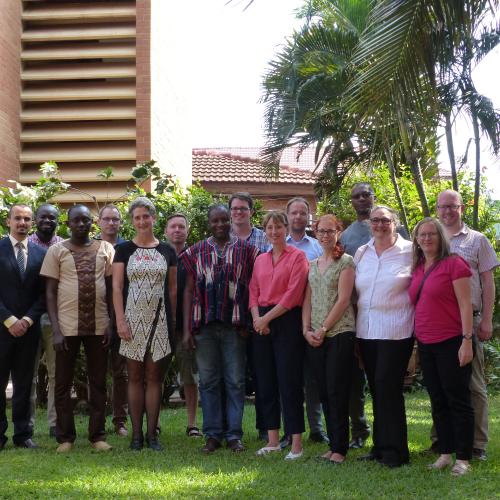 07.09.2019GhanaSustainable energy systemsFrom 5 to 7 September 2019, the kick-off workshop for the project EnerSHelf took place in Ghana. On-site, the participants discussed common goals and visited a project site.
07.09.2019GhanaSustainable energy systemsFrom 5 to 7 September 2019, the kick-off workshop for the project EnerSHelf took place in Ghana. On-site, the participants discussed common goals and visited a project site.
- Image
 13.08.2019Benin, NigeriaSustainable energy systemsYESPV-NIGBEN is a German-African CLIENT II project that aims to support food and energy production in Nigeria and Benin by developing climate-friendly and efficient land-use resources for food and energy production. At the launch event at the research institute Forschungszentrum Jülich on 13 August, Thomas Rachel (MdB) from the German Federal Ministry of Education and Research (BMBF) presented the funding certificates to Prof. Harald Bolt from the Board of Directors of Forschungszentrum Jülich and Dr. Solomon Agbo, who is coordinating the project, as well as other project partners.
13.08.2019Benin, NigeriaSustainable energy systemsYESPV-NIGBEN is a German-African CLIENT II project that aims to support food and energy production in Nigeria and Benin by developing climate-friendly and efficient land-use resources for food and energy production. At the launch event at the research institute Forschungszentrum Jülich on 13 August, Thomas Rachel (MdB) from the German Federal Ministry of Education and Research (BMBF) presented the funding certificates to Prof. Harald Bolt from the Board of Directors of Forschungszentrum Jülich and Dr. Solomon Agbo, who is coordinating the project, as well as other project partners. - Image
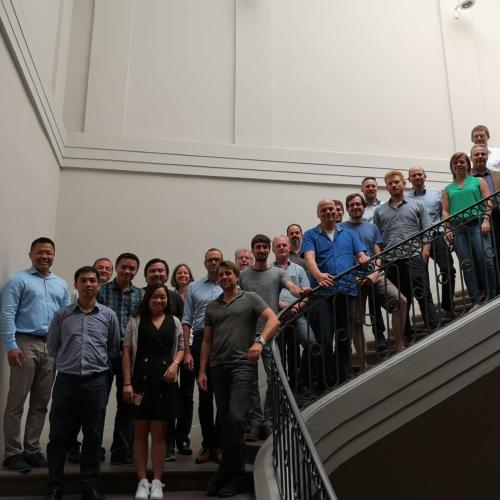 20.07.2019VietnamWater managementFrom 18th to 19th July 2019 a project meeting at the German ViWaT-Engineering partner took place.
20.07.2019VietnamWater managementFrom 18th to 19th July 2019 a project meeting at the German ViWaT-Engineering partner took place. - Image
 04.07.2019KazakhstanOn 24/6/2019, German and Central Asian representatives from science and industry met in Almaty to usher in the launch of the CASIB regional office as part of a stakeholder conference. The event focused on the emergence and strengthening of networks for joint scientific and economic collaboration between Germany and Central Asia in the context of the CLIENT II funding measure.
04.07.2019KazakhstanOn 24/6/2019, German and Central Asian representatives from science and industry met in Almaty to usher in the launch of the CASIB regional office as part of a stakeholder conference. The event focused on the emergence and strengthening of networks for joint scientific and economic collaboration between Germany and Central Asia in the context of the CLIENT II funding measure. - Image31.05.2019NamibiaAdaptation to climate change, Sustainable energy systemsAt the beginning of April, the Institute for New Energy Systems (InES) at the Ingolstadt University of Applied Sciences (THI) launched a new project for sustainable energy supply in rural Africa: PROCEED (short for "Pathway to Renewable Off-Grid Community Energy for Development").
- Image
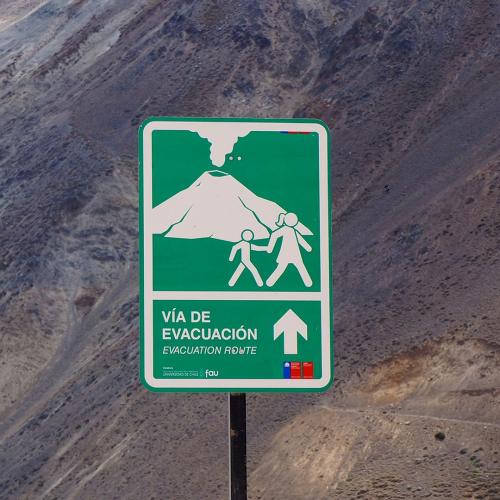 29.05.2019Chile, Ecuador, PeruAdaptation to climate change, Land management, Natural hazardsUrban agglomerations are growing worldwide and new megalopolises are emerging. The dense settlement structures with millions of people are particularly vulnerable to natural hazards. In the RIESGOS project (Spanish for "risks"), the Earth Observation Center (EOC) of the German Aerospace Center (DLR) investigates natural hazards and their interactions using the Andean region as an example.
29.05.2019Chile, Ecuador, PeruAdaptation to climate change, Land management, Natural hazardsUrban agglomerations are growing worldwide and new megalopolises are emerging. The dense settlement structures with millions of people are particularly vulnerable to natural hazards. In the RIESGOS project (Spanish for "risks"), the Earth Observation Center (EOC) of the German Aerospace Center (DLR) investigates natural hazards and their interactions using the Andean region as an example. - Image
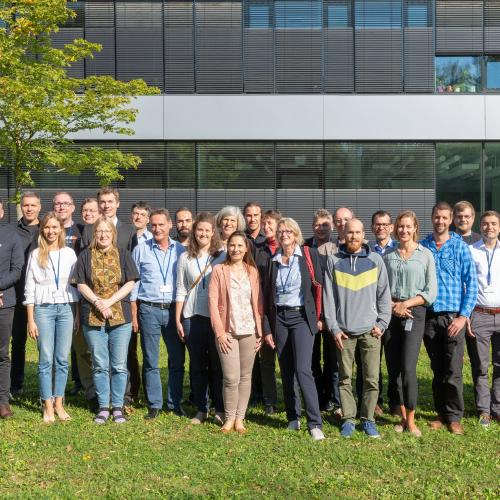 29.05.2019Peru, Ecuador, ChileNatural hazardsThe first annual meeting of the RIESGOS project took place from October 16 to 17, 2018. For almost a year, the RIESGOS team has been working on the research and development of scientific methods to better understand complex interactions in multi-risk analysis and prevent future natural disasters.
29.05.2019Peru, Ecuador, ChileNatural hazardsThe first annual meeting of the RIESGOS project took place from October 16 to 17, 2018. For almost a year, the RIESGOS team has been working on the research and development of scientific methods to better understand complex interactions in multi-risk analysis and prevent future natural disasters. - Image
 29.05.2019Kyrgyzstan, Tadzhikistan, Uzbekistan, KazakhstanLand management, Natural hazardsUnder the leadership of the Federal Institute for Geosciences and Natural Resources (BGR), a German consortium is planning a drone-assisted method for exploring uranium mining legacies in Central Asia in cooperation with partner authorities from Kyrgyzstan, Tajikistan, Uzbekistan and Kazakhstan.
29.05.2019Kyrgyzstan, Tadzhikistan, Uzbekistan, KazakhstanLand management, Natural hazardsUnder the leadership of the Federal Institute for Geosciences and Natural Resources (BGR), a German consortium is planning a drone-assisted method for exploring uranium mining legacies in Central Asia in cooperation with partner authorities from Kyrgyzstan, Tajikistan, Uzbekistan and Kazakhstan. - Image
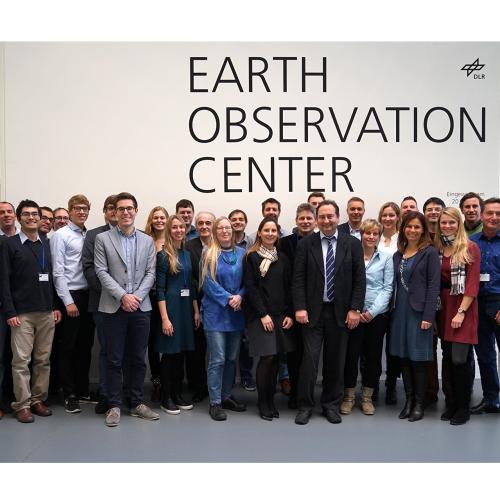 29.05.2019Ecuador, Chile, PeruNatural hazardsPeople all over the world are rushing to cities, forming increasingly densely populated regions. As a result, natural hazards are also threatening more and more people - the risk of being affected has been increasing worldwide for decades. A disaster is rarely an isolated incident: A flood can cause a landslide or an earthquake can cut off the power and water supply, meaning situations can be exacerbated for those affected as well as task forces. The possible implications of such escalation chains are illustrated by the Fukushima nuclear catastrophe in 2011, in which an earthquake triggered a tsunami disaster on the Japanese coast, subsequently damaging the nuclear power plant.
29.05.2019Ecuador, Chile, PeruNatural hazardsPeople all over the world are rushing to cities, forming increasingly densely populated regions. As a result, natural hazards are also threatening more and more people - the risk of being affected has been increasing worldwide for decades. A disaster is rarely an isolated incident: A flood can cause a landslide or an earthquake can cut off the power and water supply, meaning situations can be exacerbated for those affected as well as task forces. The possible implications of such escalation chains are illustrated by the Fukushima nuclear catastrophe in 2011, in which an earthquake triggered a tsunami disaster on the Japanese coast, subsequently damaging the nuclear power plant. - Image
 08.05.2019BrazilResource efficiency and circular economyOn 8 May 2019, the kick-off meeting of the German partners for the TRABBIO funding project took place at REW Regenis in Quakenbrück.
08.05.2019BrazilResource efficiency and circular economyOn 8 May 2019, the kick-off meeting of the German partners for the TRABBIO funding project took place at REW Regenis in Quakenbrück.
